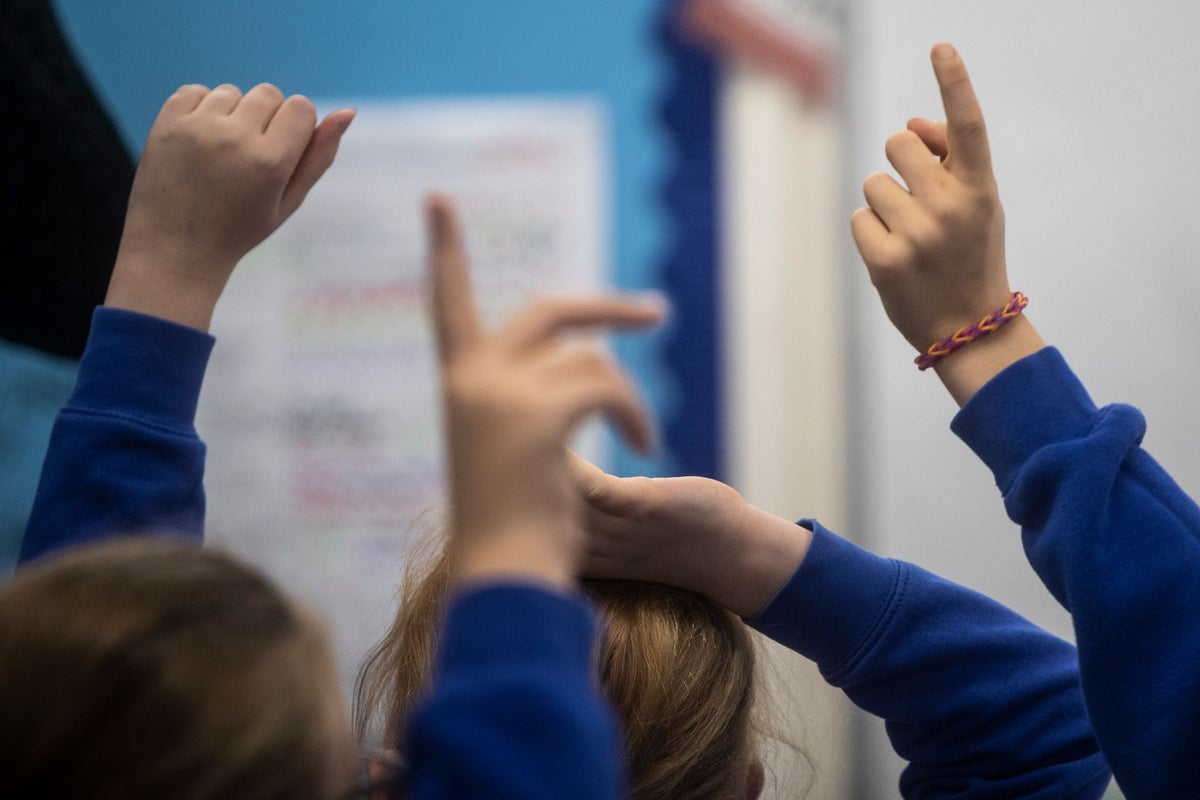
The Scottish First Minister has said there is a “very hard limit” to how much the Scottish Government can raise the wages of workers who have voted to strike unless Rishi Sunak stumps up more cash for Holyrood.
The Educational Institute of Scotland (EIS) announced on Thursday that a vast majority of its members had voted in favour of walkouts, a move which comes on the back of nurses voting for strikes.
Nicola Sturgeon, who met the Prime Minister for the first time since he landed the top job, said “there is a hard limit without additional resources from Westminster in what we can do”.
“We are in a time of sky high inflation, and that is posing real difficulties to public sector workers and people who work in the private sector too,” the First Minister said.
“The Scottish Government, and I think this can be demonstrated in the deals that we have agreed so far this year and the pay offers we’ve made, we are doing everything we can to maximise the pay increases we can give to public sector workers, but we operate within effectively a fixed budget.”
And as well as teachers and nurses, yet more strike action could cause chaos in Scotland, with other NHS staff – excluding doctors – yet to close strike ballots, while the NASUWT, another teaching union, is due to close its vote on January 6.
Unison suspended its strike action in order to ballot its members on the offer, while the Chartered Society of Physiotherapy and GMB members in the Scottish Ambulance Service and some NHS boards – including in NHS Greater Glasgow and Clyde – voted last week to back strikes.
Civil servants will also walk out in Scotland after members of the PCS union across the UK voted to back the action, while university lecturers represented by the UCU union voted this week to strike.
Ms Sturgeon said she had “enormous sympathy with public sector workers” and said her ministers would “continue to talk to trade unions and we will try as hard as we can to put on the table offers that they feel able to accept”.
“But I would not be straight with people if I didn’t say that within a fixed budget, with no ability to borrow, no ability mid-year to raise taxes, all of our reserves already allocated, that there is a very hard limit to what we’re able to do,” she said.
Cosla and the Scottish Government really must now pay attention to Scotland’s teachers and they must come back with a greatly improved pay offer— Andrea Bradley, EIS general secretary
On Wednesday members of the Royal College of Nursing (RCN) said they would strike, rejecting a flat £2,205 pay offer from the Scottish Government.
Less than 24 hours later the EIS said 96% of the members who voted in its ballot support strike action, with the union pencilling in November 24 for its first walkout.
EIS general secretary Andrea Bradley said: “A move to strike action is always a last resort, but our members have become increasingly angry over their treatment by their employers and by the Scottish Government.
“The last pay offer, a sub-inflation 5%, was rejected by Scotland’s teachers almost three months ago. Since then there has been no new offer made, despite a strong desire on the part of teachers for a fair deal to be struck.
“In the current context – with the cost of living soaring, and prices of food and fuel, housing and heating continuing to climb ever higher – our members are neither willing nor able to accept a deep real-terms cut to their pay.
“(Local authority body) Cosla and the Scottish Government really must now pay attention to Scotland’s teachers and they must come back with a greatly improved pay offer if strike action starting this month is to be avoided.”
An executive committee of the EIS will now convene to discuss options for strike action, including dates, and the union warned walkouts could come before the end of this month.
NHS staff are yet to announce when they will take action, but the RCN said walkouts would be similar to reducing staffing levels to that of a weekend, with a focus on emergency care.
Scottish Deputy First Minister John Swinney, who is also currently in charge of the country’s finances, has repeatedly said there is no money left to increase pay deals, leaving the path to a resolution unclear.
Education Secretary Shirley-Anne Somerville said on Thursday the Scottish Government is “absolutely committed” to reaching a “fair pay offer” for teachers.
Elsewhere, the threat of rail disruption over Christmas looms as members of the RMT union working with Network Rail are currently being balloted for a fresh mandate for strikes, with a result expected early next week.
The union has also threatened walkouts every Friday and Saturday in the lead-up to Christmas over a separate dispute with ScotRail.
Disruption on the newly nationalised service became a fixture in the early summer, with ScotRail forced to cancel hundreds of services in response to industrial action.







